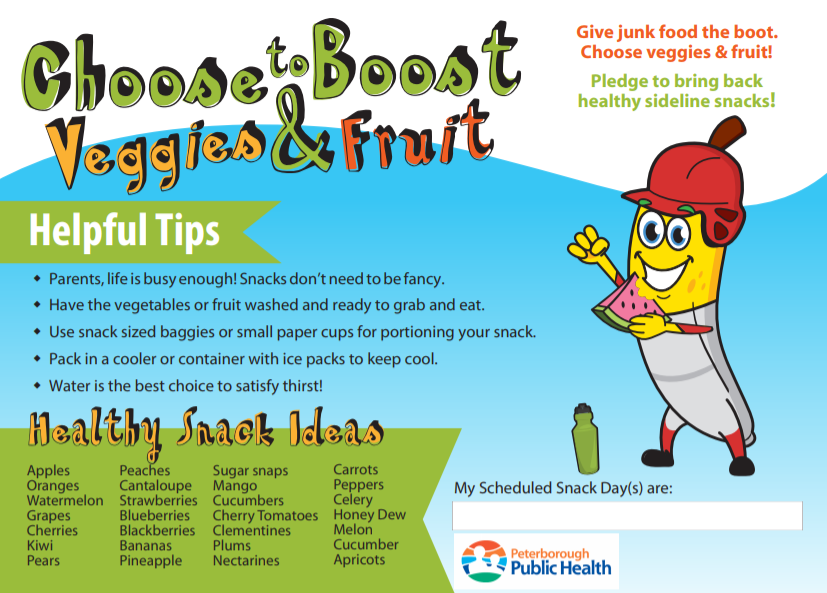Physical Activity
Healthy Halftime Snacks!

Hey Coaches! Check out these great printable resources for ideas about healthy “Halftime Snacks”
2019 Healthy Halftime Snacks 4up
What is physical activity?
Physical activity happens any time you use your muscles to move your body, resulting in increased heart rate and breathing. There are two main types of physical activity:
Active living is a way of life where physical activity is natural and integrated into daily life. It can be any type of physical activity. Examples include walking or cycling for transportation, household chores, gardening and shovelling snow.
Exercise is a form of physical activity that is planned, repetitive and purposeful to improve or maintain fitness. Examples include brisk walking, jogging, playing sports and working out.
Recommendations
Adults are recommended to get at least 150 minutes of moderate- to vigorous-intensity aerobic physical activity per week. That is about 22 minutes every day, or 30 minutes/5 days per week. It is also beneficial to add muscle and bone strengthening activities using major muscle groups, at least 2 days per week.
Benefits of regular physical activity for adults:
Reduce the risk of:
- Overweight and obesity
- High blood pressure, heart disease, stroke, type 2 diabetes
- Certain types of cancer
- Osteroporosis
- Premature death
Can lead to improved:
- Fitness
- Strength
- Mobility and ability to do daily activities and prevent falls if you’re an older adult
- Mental health (mood/morale and self-esteem)
Research shows that as much as half the functional decline between the ages of 30 and 70 is due not to aging itself but to an inactive way of life.
Resources
The Canadian Society for Exercise Physiology (CSEP)
Centers for Disease Control and Prevention (CDC)
Benefits of Physical Activity – Public Health Agency of Canada
Physical Activity – Public Health Agency of Canada
“What is the single best thing we can do for our health?” (video)

